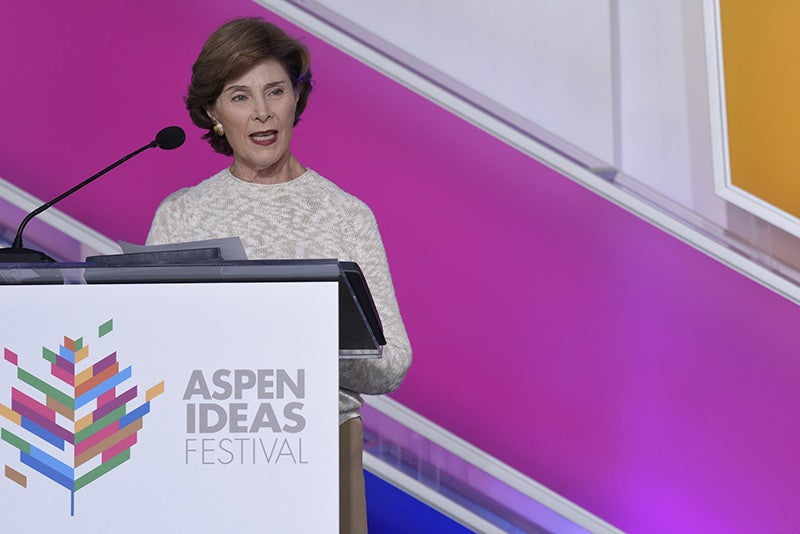
Fifteen years after President George W. Bush first sent American forces into Afghanistan, his wife considers the job unfinished. “I hope we won’t leave,” former First Lady Laura Bush said on Monday.
She cited the conversations she’s had with Afghan women, who worry about what follows the exit of U.S. forces. “They hope that our troops won’t leave too fast,” she said, “because if we leave there’s a vacuum. And they saw what happened in Iraq, where it just wasn’t successful for us to leave.” And she applauded the progress that Afghan women had made over the past decade and a half. “That’s one of the reasons I hope we won’t withdraw our troops—because we would have to start all over again,” she said.
It’s a war that President Obama inherited from his predecessor, and despite his pledge to “end the war in Afghanistan” by 2014, one that he’ll now pass along to his successor. Although there was overwhelming support for the invasion when it was launched, 42 percent of the public said they now considered it a mistake in a 2015 Gallup poll.
But Laura Bush remains as committed to the empowerment of Afghan women as she was when she first publicly took up the cause, in a November, 2001 radio address. “I hope Americans will join our family in working to insure that dignity and opportunity will be secured for all the women and children of Afghanistan,” she said then. In a nation that remains wracked by violence and torn by insurgencies, it’s proven an elusive goal.
Bush spoke on Monday at the Aspen Ideas Festival, which is co-hosted by the Aspen Institute and The Atlantic, to promote her new book, We Are Afghan Women. She traced her interest in Afghanistan all the way back to a 6th grade country report, when she chose it “because it just seemed like the most remote and exotic country I could pick.”
After the American invasion, championing the rights of Afghan women became one of her signature issues. “When American women started looking at our sisters in Afghanistan and imagining what their lives were like,” she said, they were moved to help. Bush co-founded the U.S.-Afghan Women’s Council, on which she still serves as an honorary co-chair alongside Hillary Clinton.

“The fact is that in countries like that where women’s rights are … marginalized,” she said, “These are countries where no one’s rights are protected.” She explained that American women had responded strongly to learning of “half of a country left out.” When that happens, she said, “what you see … is a failed country, and that’s what Afghanistan was.”
Of course, many would argue that this is what Afghanistan still is—a failed country, despite the expenditure more than $100 billion and the loss of more than three thousand American lives. For Laura Bush, though, the continuing struggles of Afghan women only underline the need to provide further aid. The message of her book, and of her remarks, is that America can’t abandon them now.
This article originally appeared at The Atlantic.

